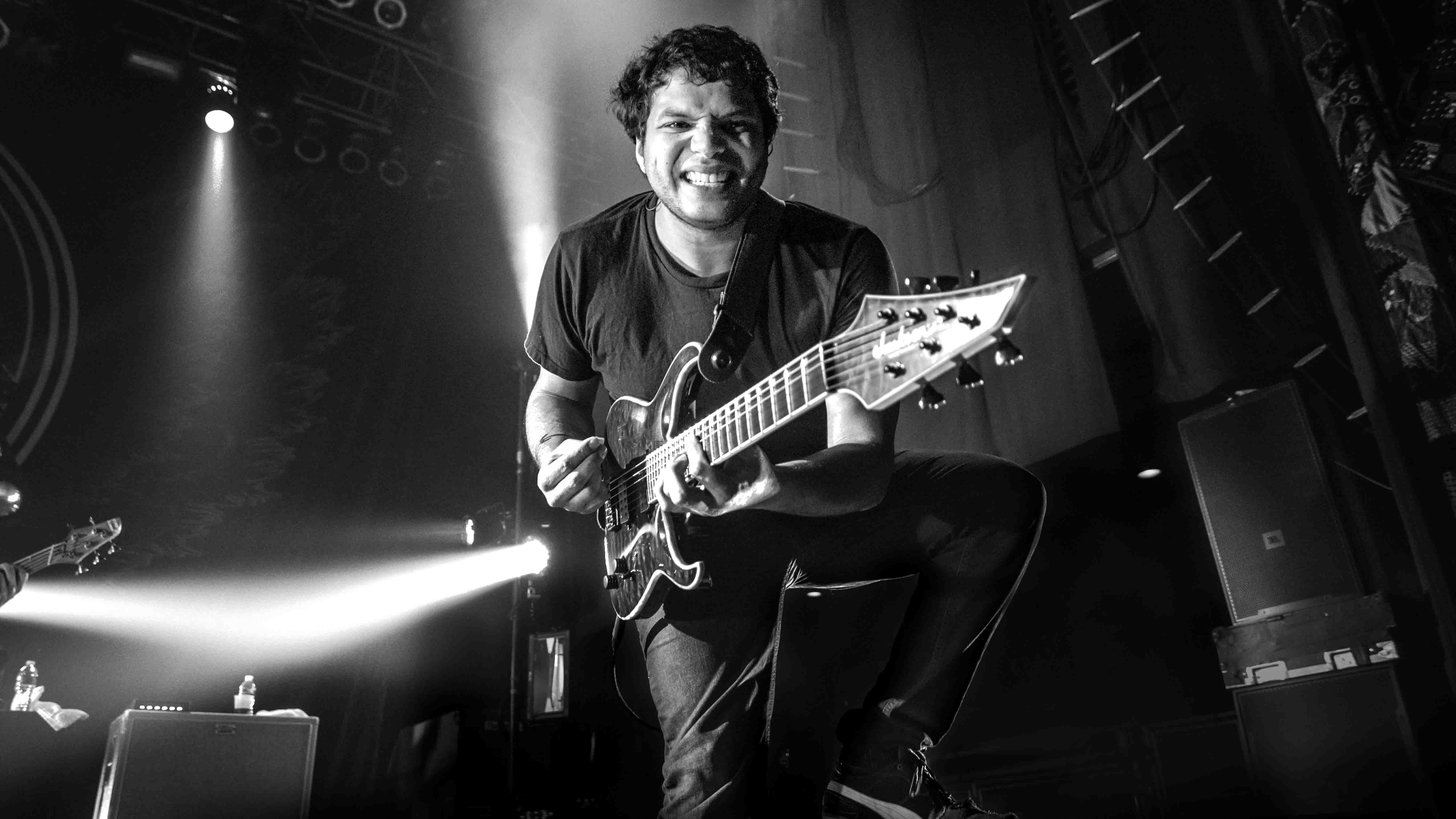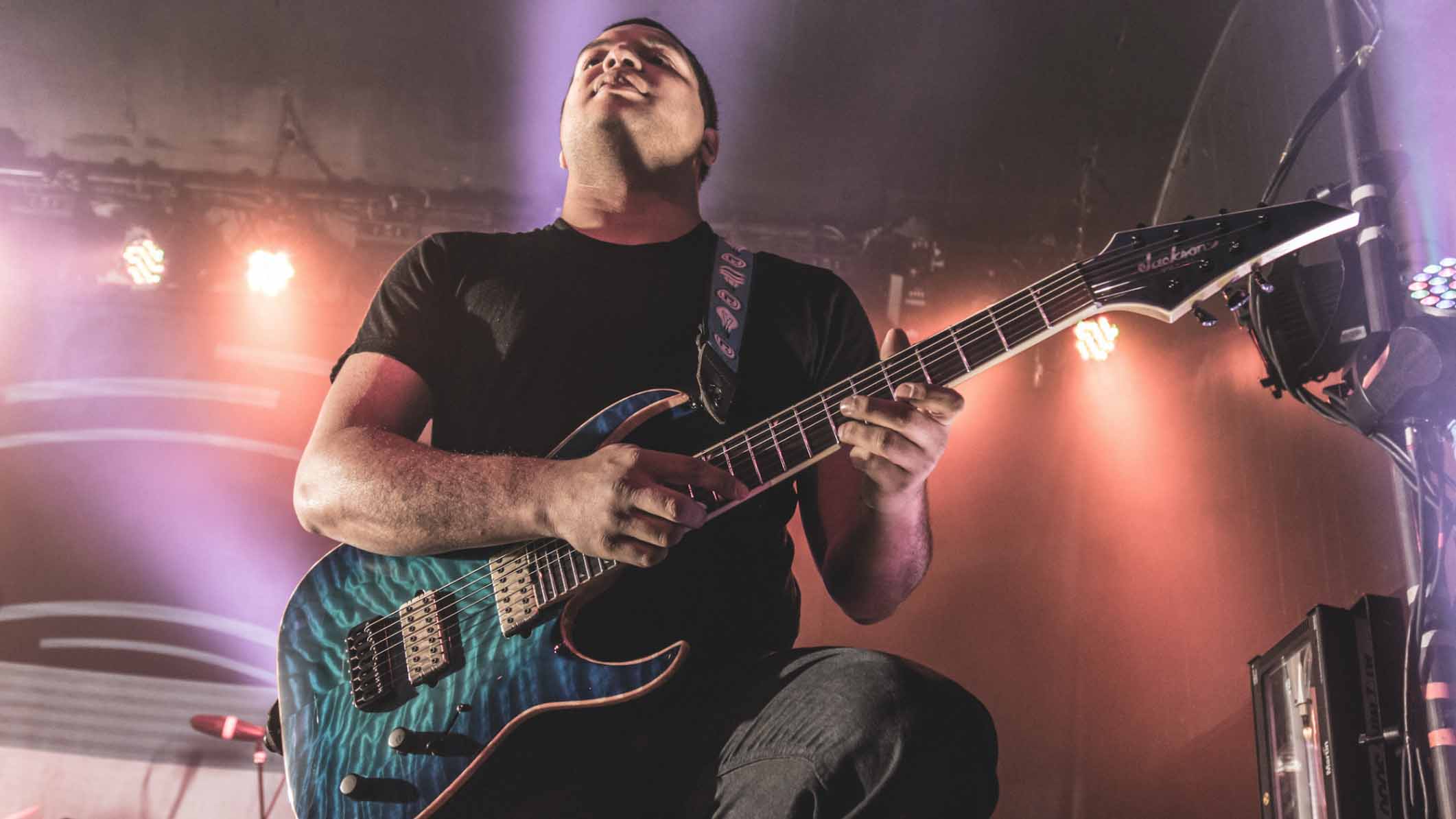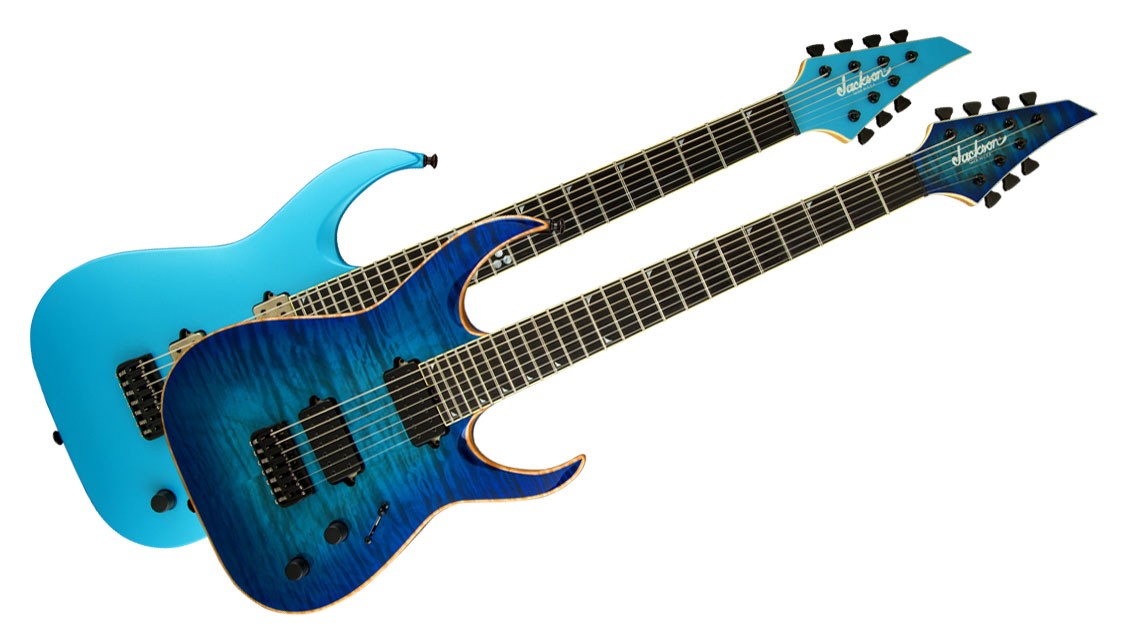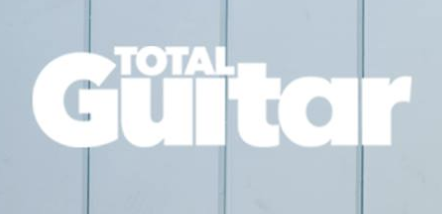Periphery's Misha Mansoor talks seven-strings, eight-strings and Jackson guitars
The prog-metal star on extended-ranges and signatures

Introduction
Periphery’s founder on discovering extended range guitars and why his signature models were a real labour of love
When did you first start playing 7-string guitars?
“I started out as a drummer, and the best part of being a drummer when you’re starting out is everyone has to bring their gear to your place. And usually if it’s heavy they’ll leave it there. I was lucky that the guitarist I was jamming with had a seven-string guitar and it just kind of lived at my place. So, I was exposed to seven-string guitars early on, and it wasn’t really a strange or weird thing to me because I always had it available.
“So, I’ve always felt particularly comfortable on both six- and seven-strings. By contrast, the eight-string is something we’ve got into quite recently and I don’t really feel at home with it in the same way. I really like what it offers creatively… but it’s the one I’m least [comfortable with]. If I’m going to just grab a guitar and jam it’s probably going to be either a six- or seven-string.”
Don't Miss
Me and my guitar interview with Periphery's Misha Mansoor
Track-by-track - Periphery's Juggernaut: Alpha and Juggernaut: Omega

Seventh heaven
What was the initial attraction to seven-string guitar for you?
“Honestly, I just loved the sound of a low guitar. I thought it sounded bigger, I liked how menacing it sounded. It sounds pissed off.
“I was tuning to B standard or drop A back then, and the difference between E and drop B is drastic, not just in tonality but in timbre as well. So you get this deep and dark timbre to all your chords and especially with it being a less common instrument back then than it is nowadays, it was a sound you didn’t really hear very often. It was a different thing altogether.
“Everyone was jamming with Eb powerchords, and there’s this instrument that creates this other sound. I thought that was fascinating.”
Did you have any guidance back then, someone to show you the way on a seven-string?
“I’m self-taught, and with that and my kind of mind, where I’m trial and error, it may be a slower learning process, but it’s more rewarding and fun for me, figuring stuff out for myself.
“And I’m pretty grateful for it because it made me develop my sound without realising it; I wasn’t falling into anyone else’s framework.”

The grateful eight
You’ve gradually started using eight-strings more in Periphery – II had one song, Clear had two and Juggernaut has even more eight-string songs…
“Exactly, they’re a much later stage thing. Because the truth is I wasn’t writing that much that I really liked with it. I’ve been getting a better hang of it lately and so have the other guys, so everyone is contributing. So, we have five eight-string songs on Juggernaut but the majority of our material is six- and seven-strings.”
Was it hard to resist approaching Meshuggah’s tonality when you first encountered eight-string guitars?
“Absolutely, and that’s actually a big reason we didn’t really use the eight-string at first. Because I found it very difficult to kind of approach it from an area where it didn’t end up sounding very Meshuggah-ish.
“It took a while until I was really able to get comfortable with the instrument so I was able to find my sort of sound with it. And I think because of Meshuggah, anything that is that low now will always be reminiscent for better or for worse, because they really are the first to have ventured that low consistently.”

Jackson action
How long did your Jackson signature models take to develop?
“The project was supposed to take about eight months, but it ended up taking over two-and-a-half years and a lot more money and prototypes than they originally expected, but they never complained once. They’ve always been excited about the potential for it, and they’ve spoken out when they thought my ideas were not maybe the best for what I was trying to achieve.
“A great example is, me being so business-minded, I thought, ‘Well, people want Floyds. Maybe I should do a Floyd on the guitar with a wheel [that locks the FR bridge in place] on it so you get the best of both worlds.’
“So, my first prototypes actually have Floyds on them. I hate Floyds and I was just trying to be marketable. They’re the ones that came to me and said, ‘Look, dude, why are you making a guitar that isn’t ideal for you?’ My ideal guitar would have a hipshot, so they said put a hipshot on.
“It was good to have some people talking sense to me when even I was getting in my own way. I think that’s a really beautiful thing.
“So they’re really great dudes, they’re guitar nerds, they totally get it and they built me my dream guitar even though it took way too long to get there [laughs]. No complaints whatsoever. They stuck with the project and we ended up with something everyone is really proud of.”
Don't Miss
Me and my guitar interview with Periphery's Misha Mansoor
Track-by-track - Periphery's Juggernaut: Alpha and Juggernaut: Omega
Total Guitar is Europe's best-selling guitar magazine.
Every month we feature interviews with the biggest names and hottest new acts in guitar land, plus Guest Lessons from the stars.
Finally, our Rocked & Rated section is the place to go for reviews, round-ups and help setting up your guitars and gear.
Subscribe: http://bit.ly/totalguitar


